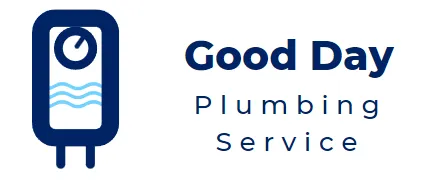Water Heater Repair:
Essential Brea Troubleshooting Tips
Having trouble with your home's water heater? Whether it's a pilot light that keeps going out or an unexpected leak, these issues are not only a hassle but also come with unwelcome expenses. But have no fear - our comprehensive guide offers practical tips and smart repair advice. From troubleshooting to maintenance, we provide everything you need to know about fixing typical water heater issues. And if you need expert repairing services or want to keep your system in shape, we have got you covered!

How does a water heater work?
Water heaters operate with a simple, yet efficient procedure. Cold water is heated in a tank with gas or electricity, while hot water flows through the plumbing to your tap. As hot water is used, the tank refills, starting the cycle again. Knowing the water heater basics can help fix any potential issues.

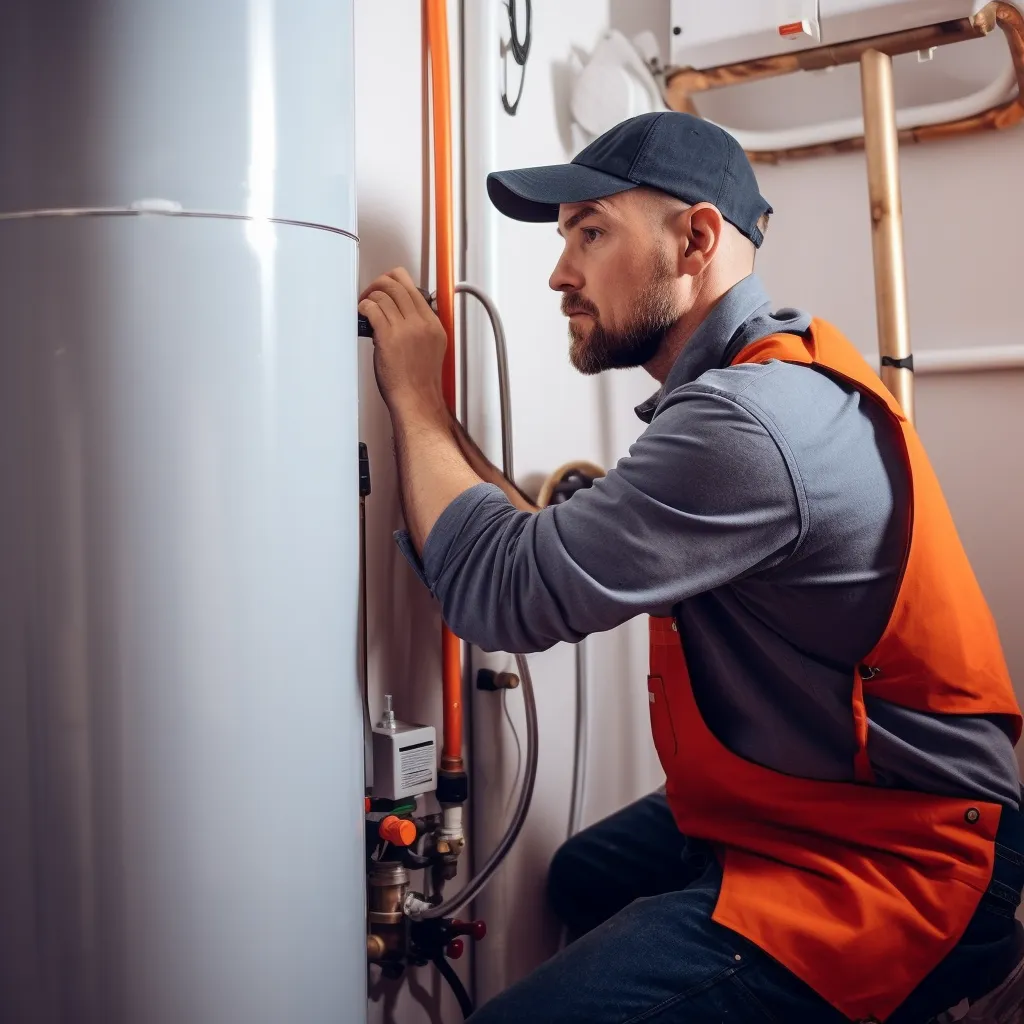
To avoid breakdowns, proper water heater maintenance is essential
It's essential to properly maintain your water heater to avoid the unpleasant surprise of a cold shower caused by malfunction. This can be achieved by executing simple measures with long term benefits. Annual flushing and draining of your machine prevents sediment build-up, thereby extending its lifespan. Additionally, inspecting the temperature and pressure relief valve ensures both efficient functioning and safety. Keep up with these upkeep practices for the availability of hot water whenever required, and to prevent a possible water heater breakdown.
What are common signs a water heater
needs to be repaired or replaced?
Having a functional water heater is crucial for having hot water whenever you need it, but they do have a limited lifespan. To keep yours in top condition, ensure that you regularly inspect it for common issues that indicate repairs or replacements are necessary. Here are a few key signs to look out for, and when you notice them, don't hesitate to search for "water heater repair near me."
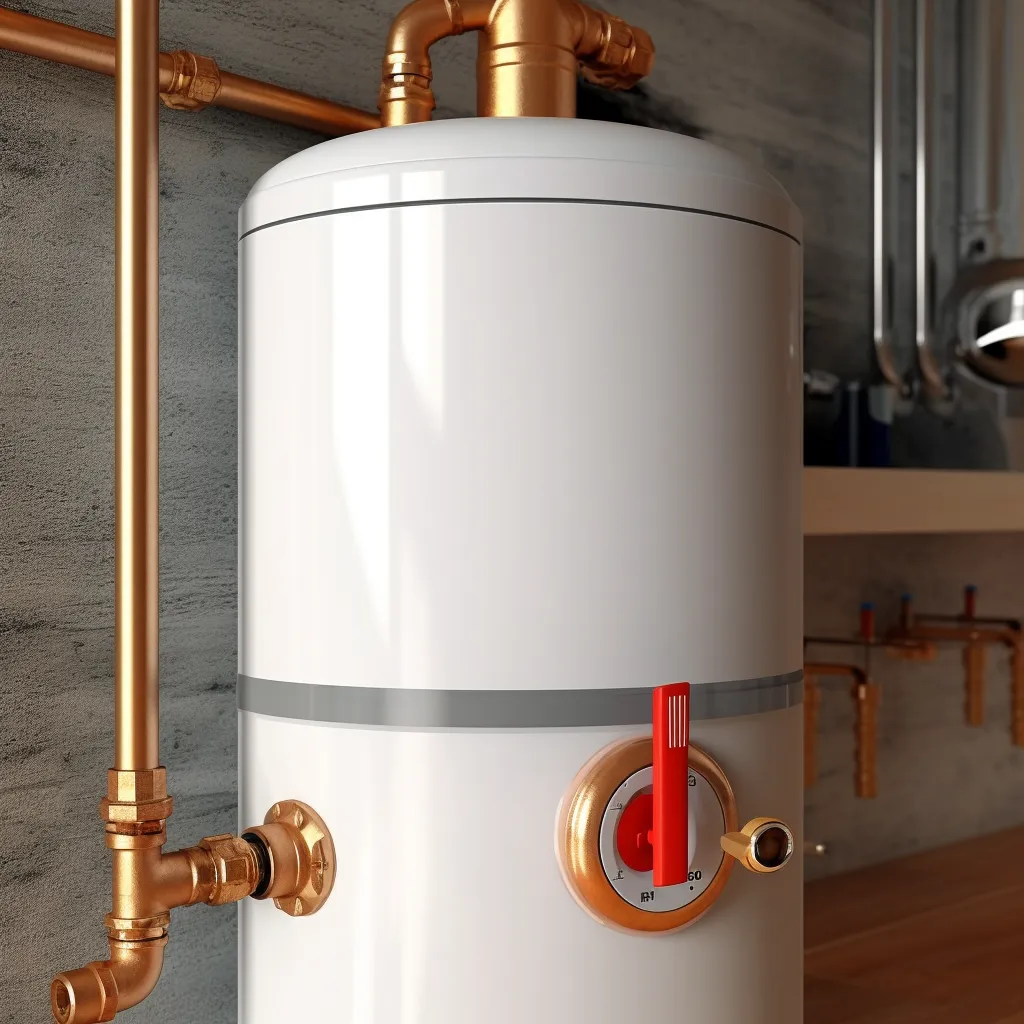
If you aren't getting hot water, check if the heater component is active or if there's any obstruction in the pipelines.
If you have no hot water at all, it could be because of the thermostat or other internal parts of the heater malfunctioning.
When you come across a leak, it's probably due to a broken valve or pipe which requires an immediate fix.
Water discoloration indicates corrosion in the water heater tank, requiring prompt replacement. Keep your water heater functioning optimally and improve your water quality.
Loud banging or rumbling from your heater? Sediment build-up may be the reason. Prompt attention is key to avoiding further damage – and higher repair costs.
Spotting early warning signs and taking swift action can help avoid unpleasant surprises from a malfunctioning water heater. It's crucial to restore the system before it completely breaks down to keep your home in order.
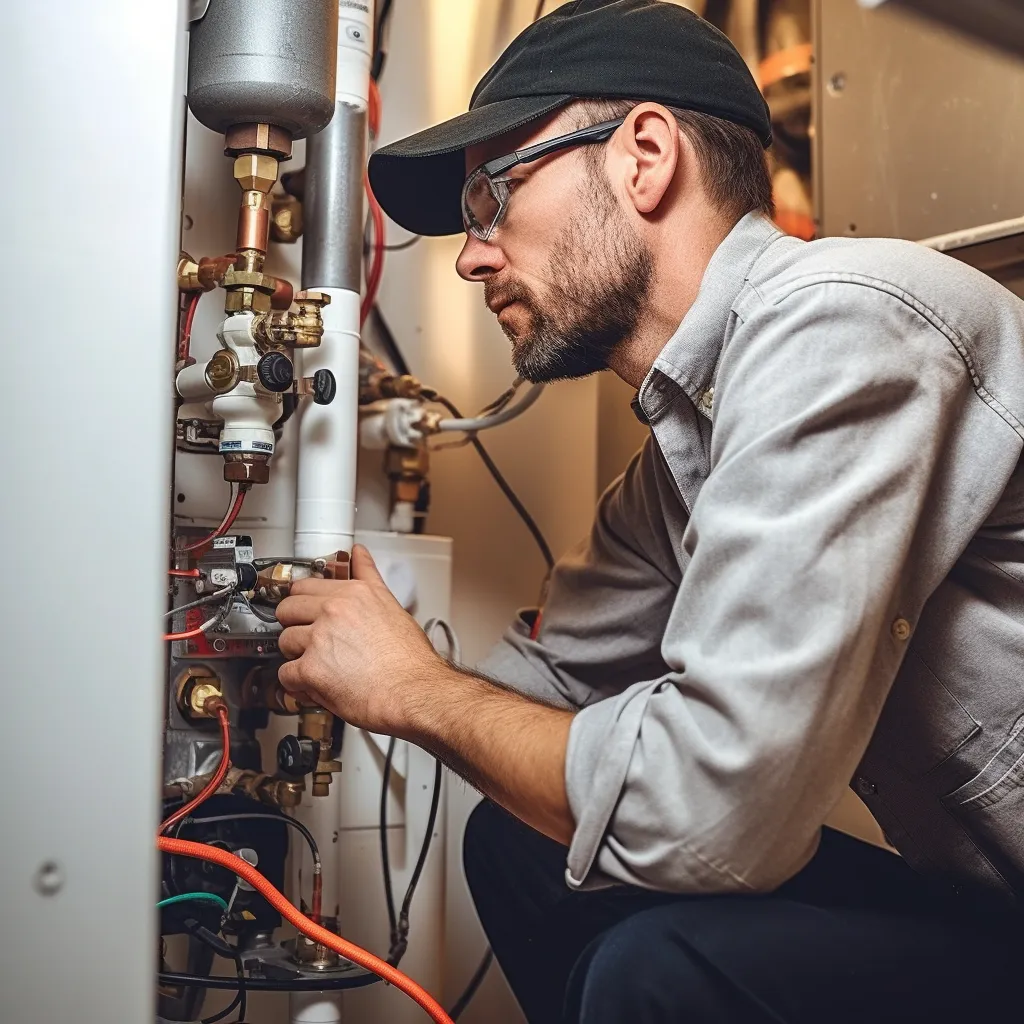
What are the possible causes of water heater malfunctions?
Heater issues often surface due to problems like faulty thermostats, electric malfunctions, or sediment accumulation. Though minor problems are easily fixable on your own, a busted heater could hint at bigger underlying malfunctions in your home systems. Don't wait for unexpected breakdowns to happen, be proactive by regularly maintaining your heating system while keeping an eye out for warning signs. By doing so, you can avoid untimely breakdowns and maintain warm, comfortable living indoors.
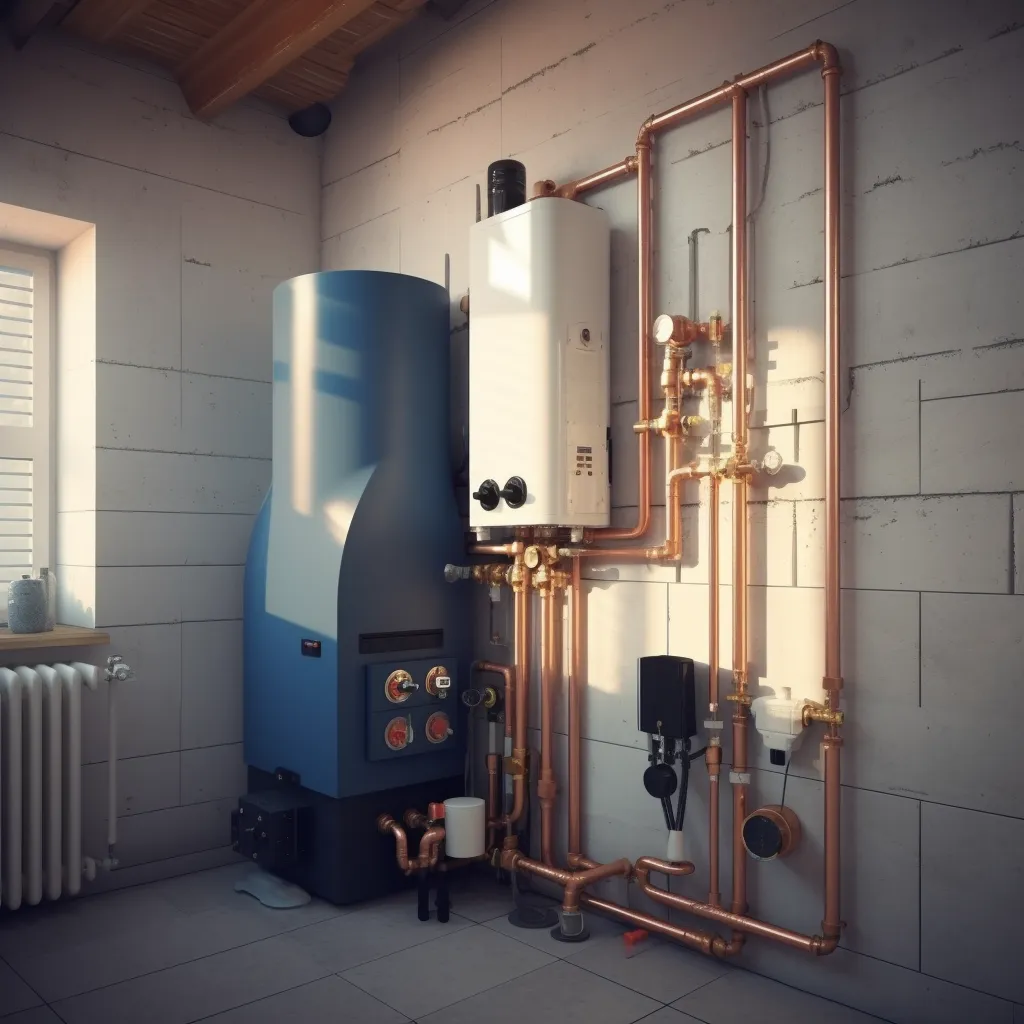
Check the temperature setting on your water heater
Ensuring maximum efficiency and safety of your water heater is crucial, and checking the temperature is the key. Avoid skin scalding and energy waste caused by high temperature, or the inconvenience of not having enough hot water due to low temperature. Don't worry, it only takes a few minutes to optimize the temperature for your comfort. According to the Department of Energy, the ideal temperature that guarantees peak efficiency and safety is 120°F (49°C).
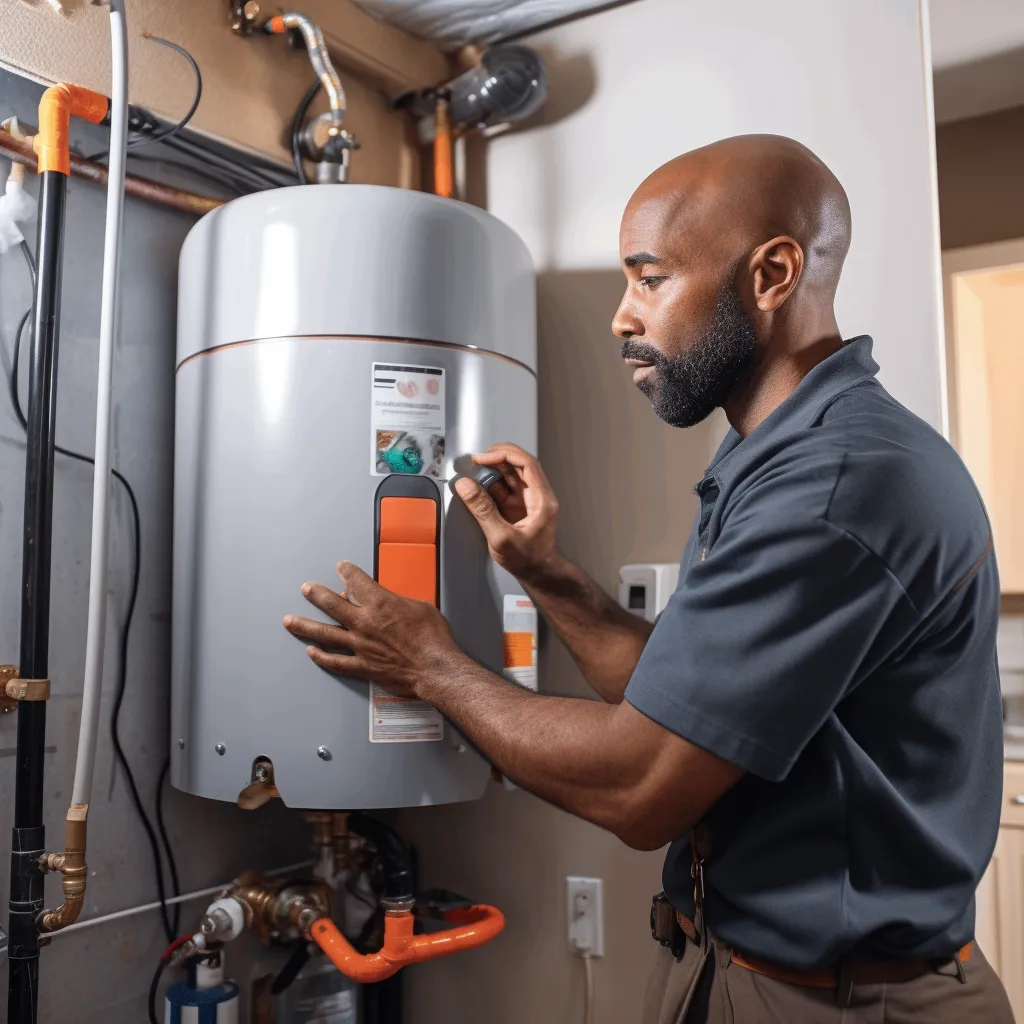
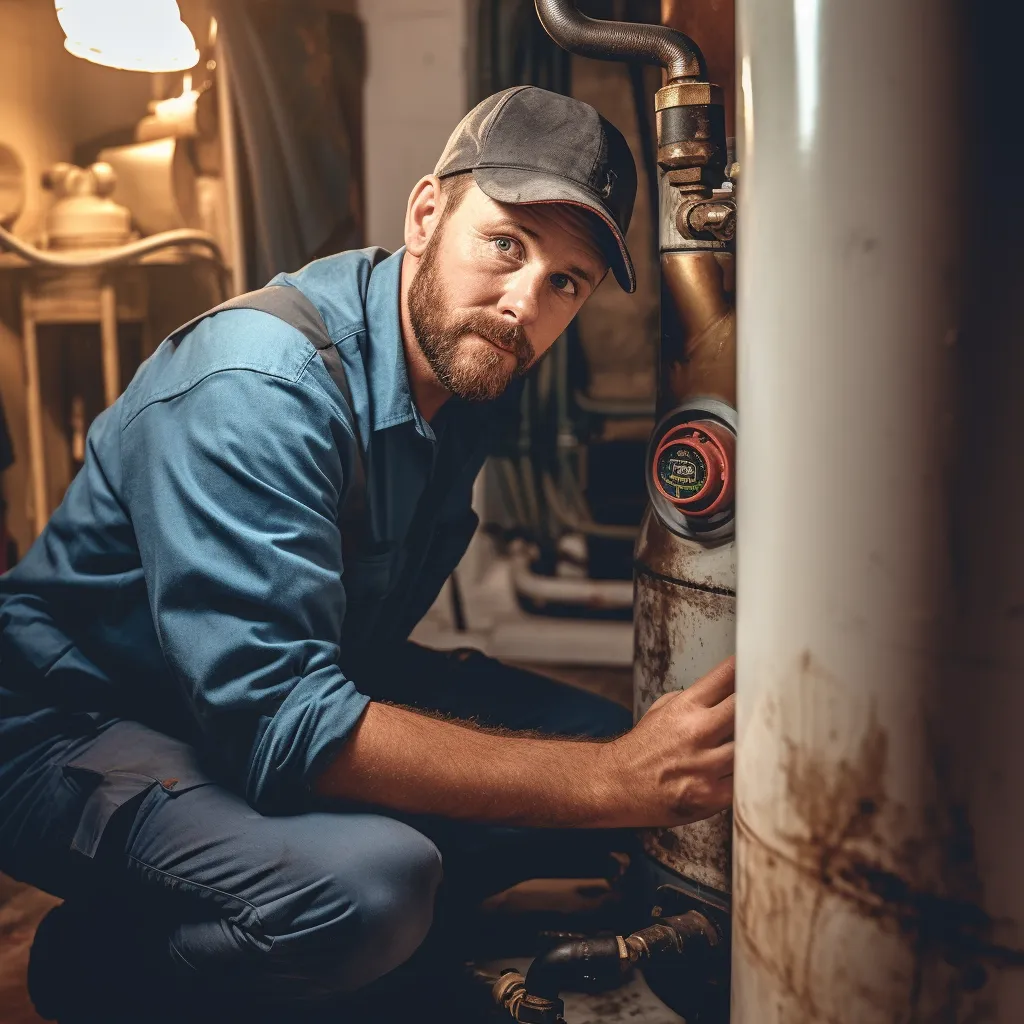
Perform regular
visual inspections
For your water heater to perform optimally, make sure to inspect it every two months. Pay attention to leaks, rust signs, and any potential problems. In case of any concerns, it's recommended to seek professional help promptly. This ensures top-notch functionality of your system.
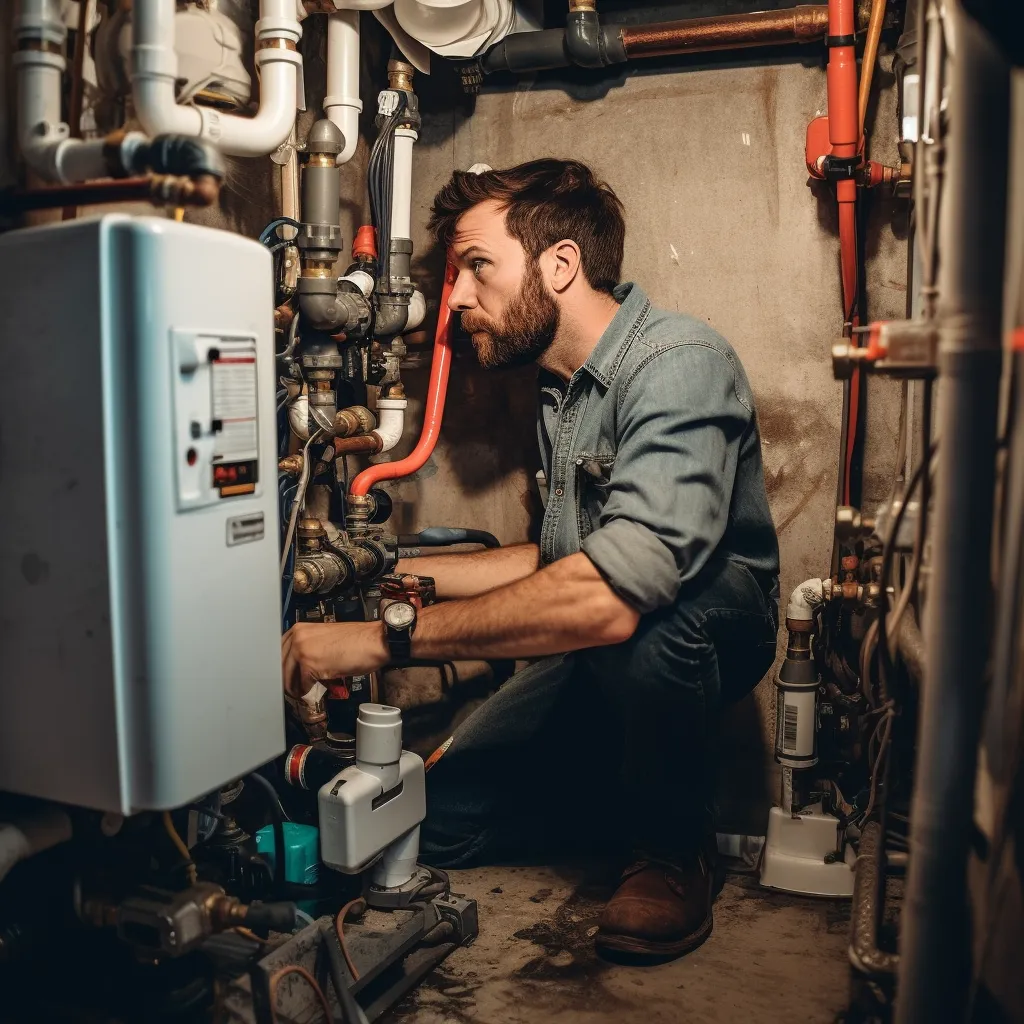
Test the water heater pressure relief valve
to make sure it works
Frequently monitoring your water heater's pressure relief valve is critical for preventing hot water disasters. Take a minute to test the valve and mitigate the risk of water damage to keep your home secure.
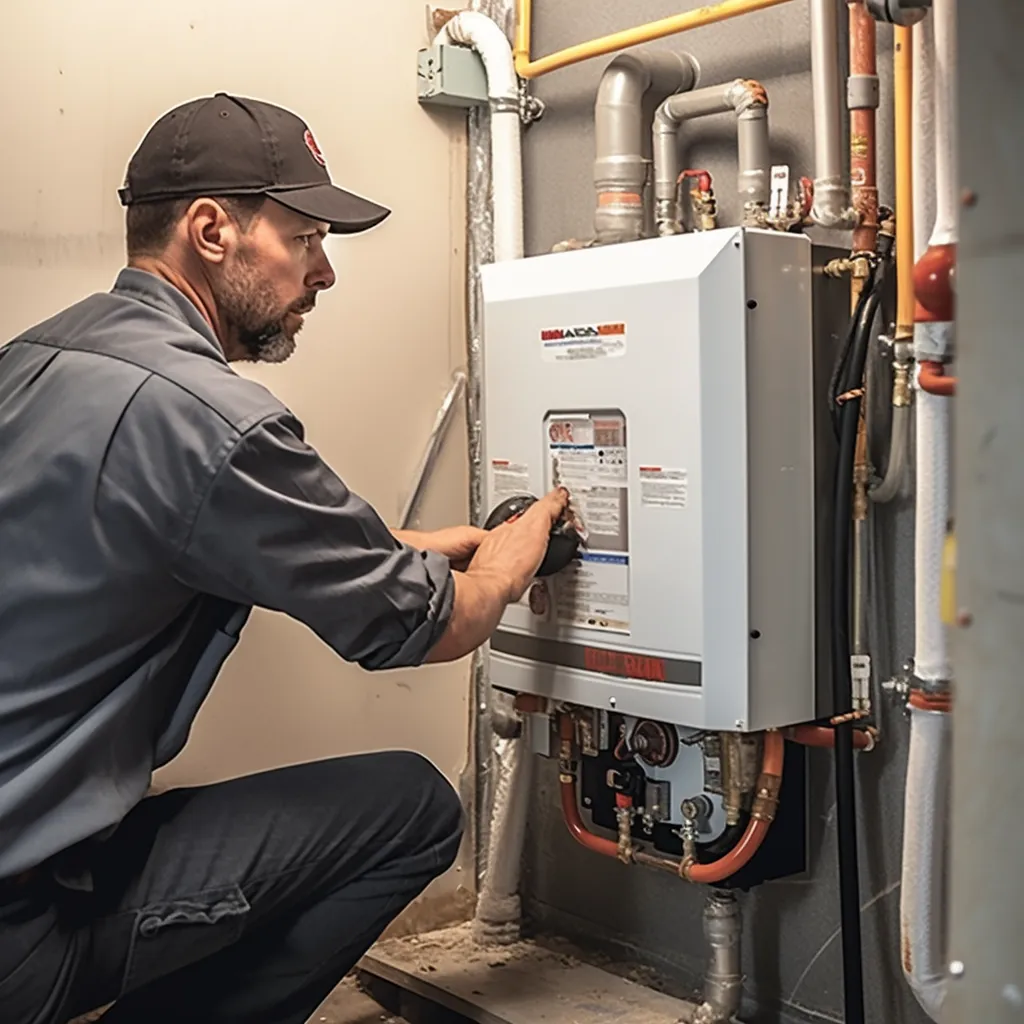
Check for signs of rust and corrosion
around the water heater tank
It is crucial to carefully examine the tank for signs of rust and corrosion. These issues can signify a deteriorating tank that may lead to leaks or even a complete failure of the water heater. Rust or corrosion on the tank can weaken the structure and make it more prone to cracks and leaks. To thoroughly assess the condition of your water heater tank, start by visually examining the exterior surface. Look for any reddish-brown patches, flaking, or discoloration, as these are typical signs of rust. Additionally, check for any areas where the tank appears to be corroded or eaten away. It is essential to remember that some rust or corrosion on the tank might be superficial and easily repairable. However, if you notice significant rusting or corroded areas that have penetrated the tank, it may be an indication that your water heater is in need of replacement. If you are uncertain about the severity of the rust or corrosion, it is recommended to consult with a professional plumber or water heater technician.
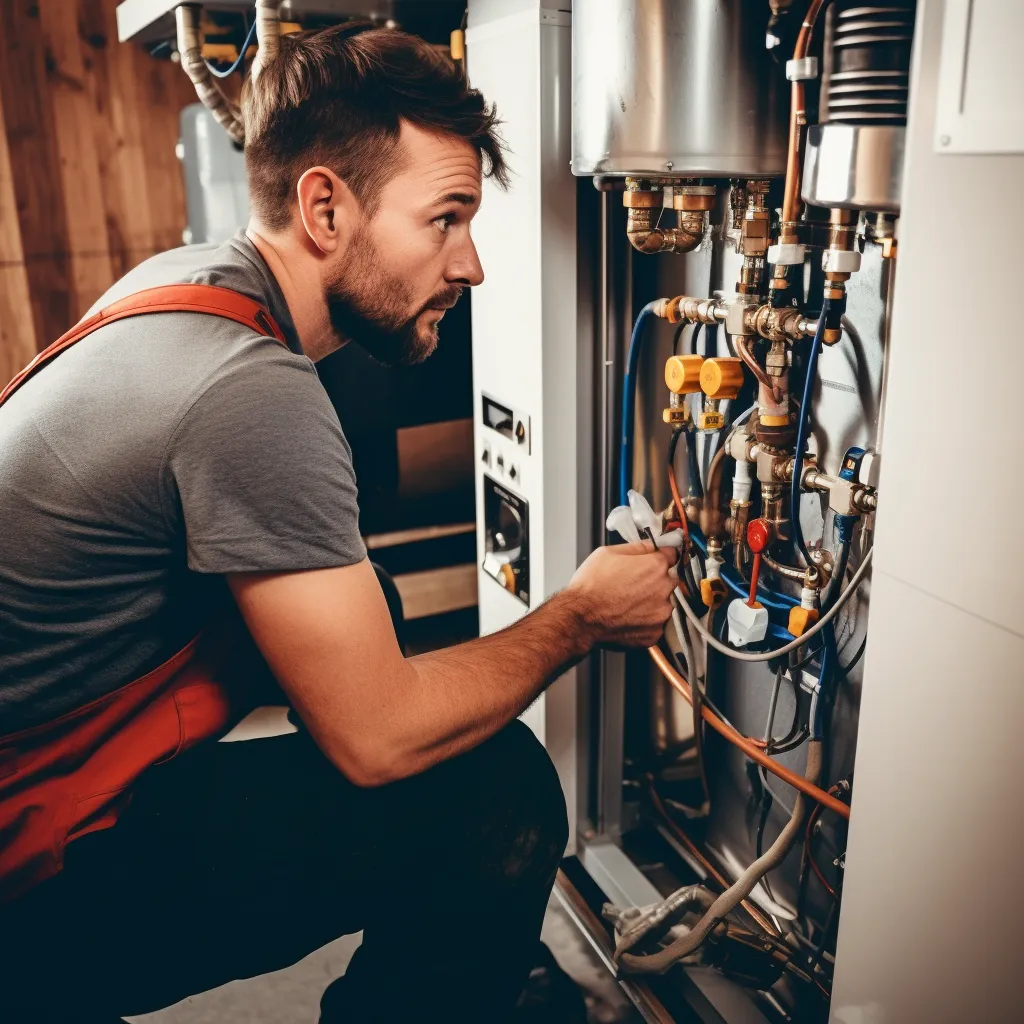
Water heater connections should be tight and secure
Keep your water heater connections safe from malfunctions and leaks. Ensure they're tightened securely and inspect them regularly for smooth operation.
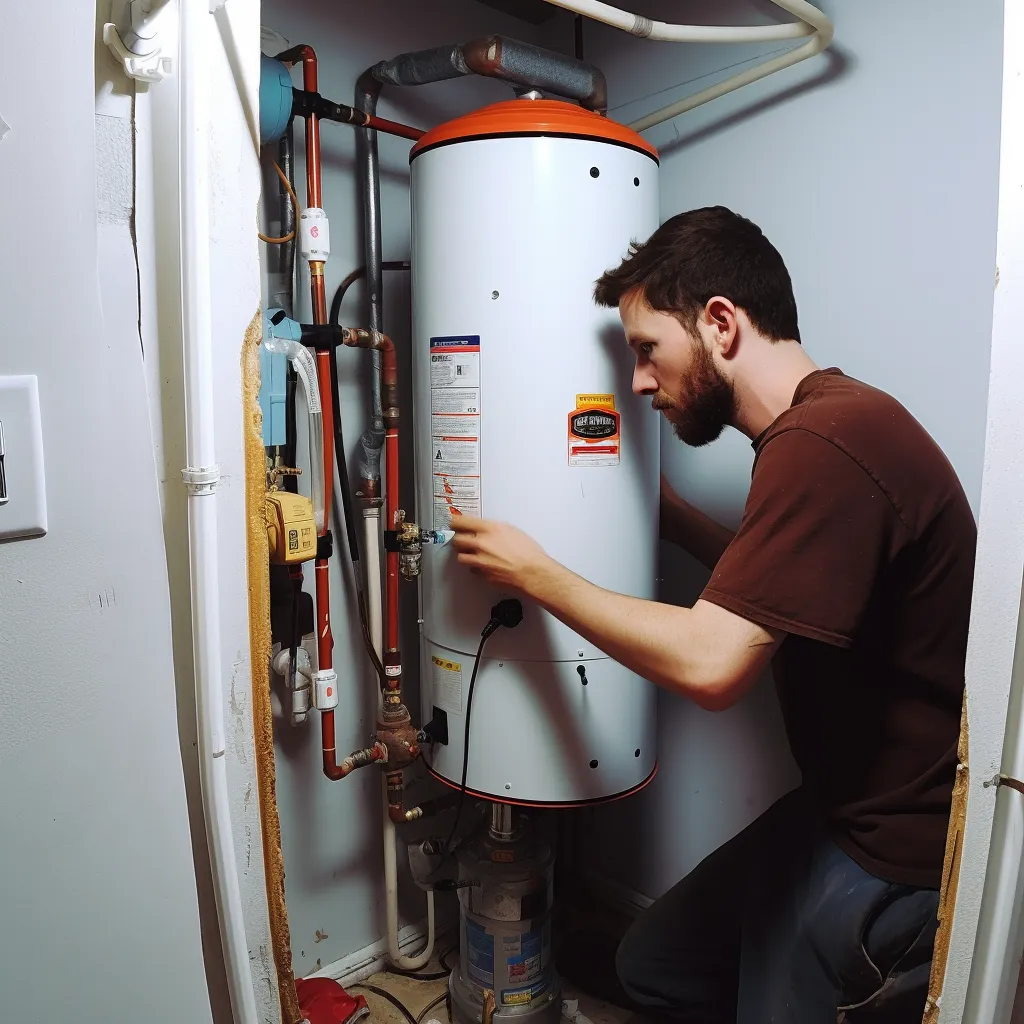
Keep the water heater and pipes free of sediment buildup
Prevent sediment buildup in your water heater to maintain efficient hot water output and lower your energy bills. Failing to do so could reduce the supply of hot water and increase energy expenses. Fortunately, removing sediment buildup is simple and effective, helping you cut back on energy costs. Keep your water heater running smoothly to never run out of hot water again.

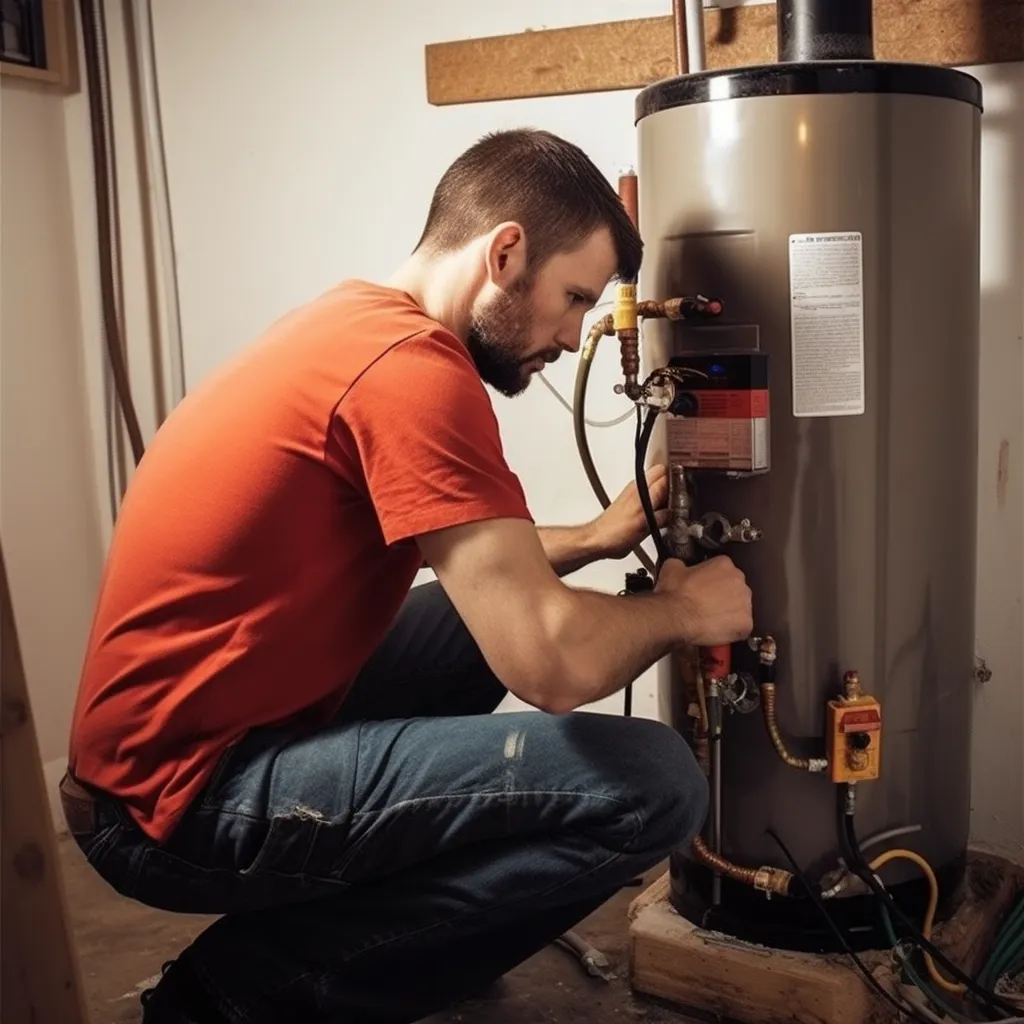
Keep the water heater burner assembly clean
Keep your water heater at peak performance by cleaning the burner assembly. Over time, debris accumulates causing inefficiency and wear which can be costly. Regular cleaning ensures smooth operation, saves on energy costs, and reduces the need for repairs.
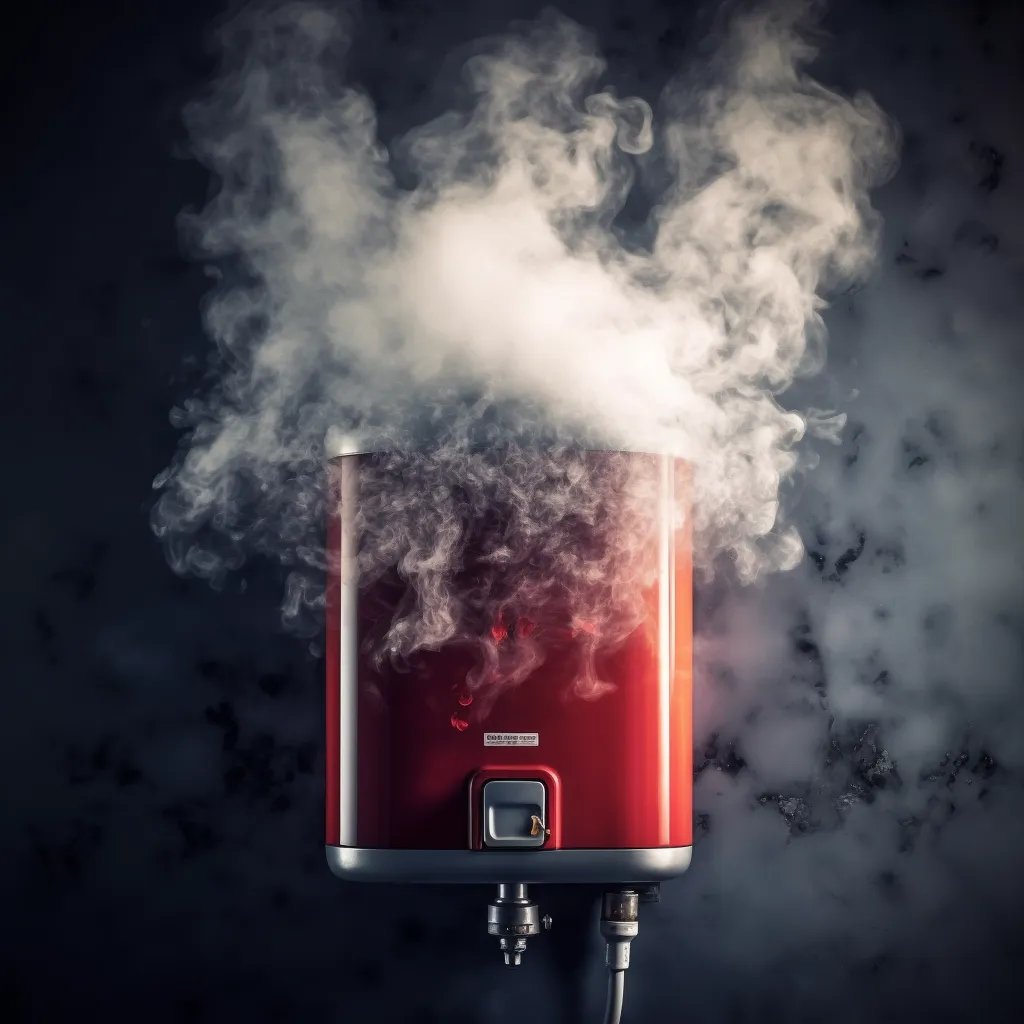
Check out the variety of water heater options available and learn how to keep each type in tip-top shape
Knowing the types of water heaters and their maintenance requirements is crucial for homeowners seeking efficient and long-lasting water heaters.
Remove sediment build-up from your gas water heater with an annual tank flushing – an essential step to ensure optimal performance.
For electric heaters, the anode rod might need a replacement depending on age and condition.
Descaling is crucial for maintaining the heating elements of tankless models. Be sure to have this done regularly to keep your heater running efficiently..
Annual maintenance is crucial for checking whether your solar heaters' panels and other components are functioning optimally.
Annual maintenance checks are crucial for preventing corrosion and other issues with your condensing type.
Upgrade your smart heaters with software updates and firmware changes to avoid issues and enjoy optimal use. A yearly inspection of heat pump heaters can identify excess heat and other areas of concern, ensuring safety and satisfaction.
Avoid potential issues with your water heater by learning about its specific maintenance needs. Taking time to learn and follow proper maintenance steps can extend its life and ensure it runs smoothly, saving you money in the long-term.
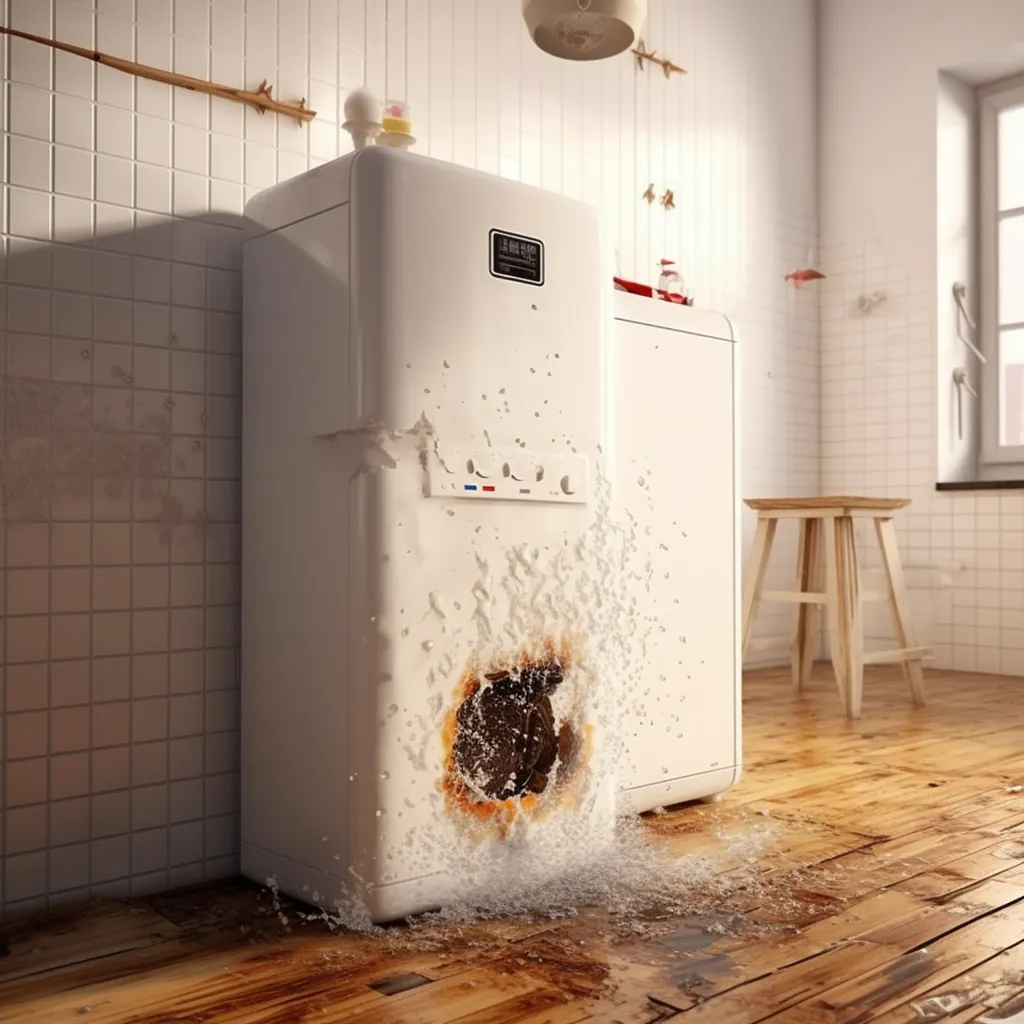
Troubleshooting tips
to help you identify
water heater problems
If you're facing a shortage of hot water, temperature problems, or other water heater anomalies such as leaks or weird sounds, there's no need to panic. Running some basic troubleshooting steps can certainly help you out before resorting to a technician. A failed heating element, busted thermostat, or sediment accumulation might be among the plausible culprits. With simple but effective troubleshooting techniques, you can identify and fix these problems all by yourself, saving valuable time and money.
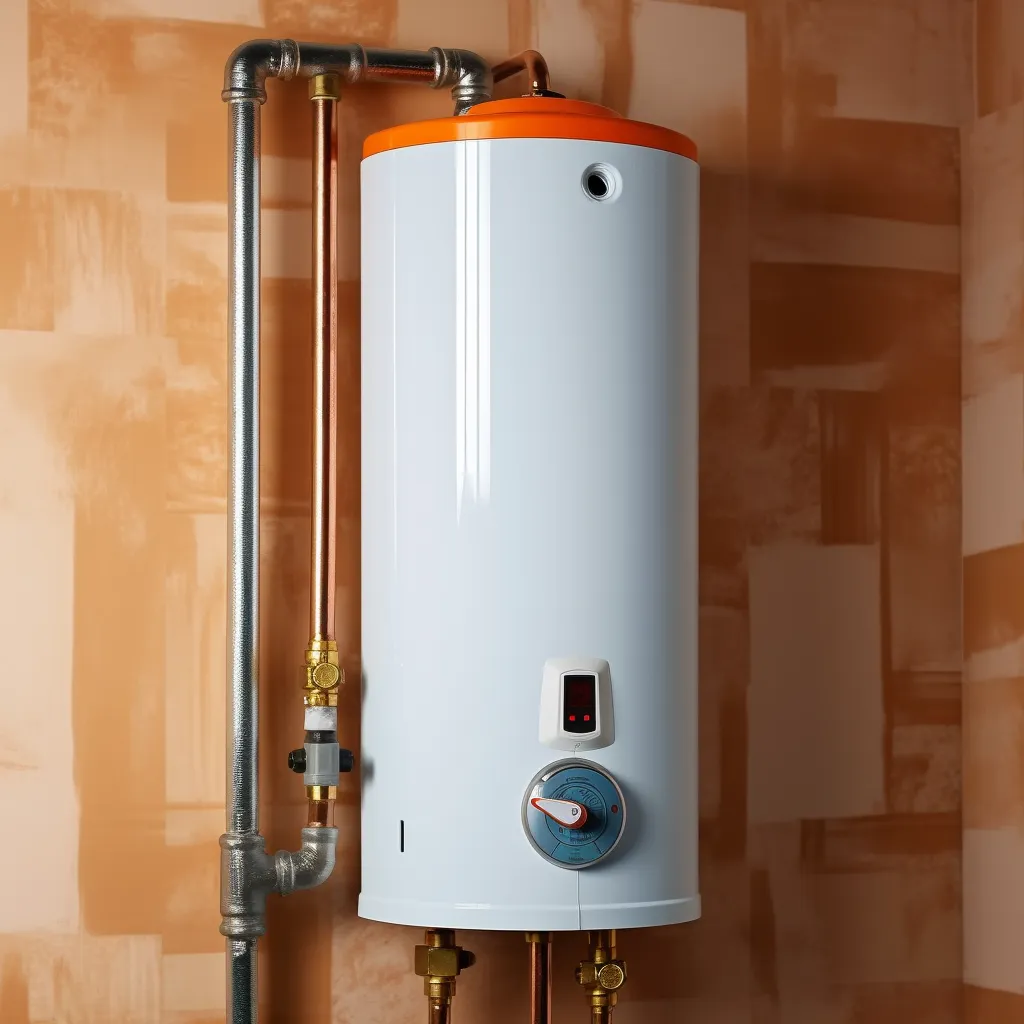
Benefits of hiring a licensed water heater professional
Why take risks when it comes to your well-being and comfort? Always rely on a licensed plumber to fix or replace your water heater as needed. A licensed professional possesses the necessary knowledge and skills to get the job done right. Benefits of hiring them include safety, efficiency, and peace of mind.
Our water heater services are comprehensive, including certified professional installation of new systems, thorough inspection and diagnosis of existing systems, repairs, replacements, and maintenance. Trust us for the best local water heater solutions.
Top-notch troubleshooting, problem-solving support, and personalized advice to help you choose the best home heating and cooling systems that cater to your unique needs.
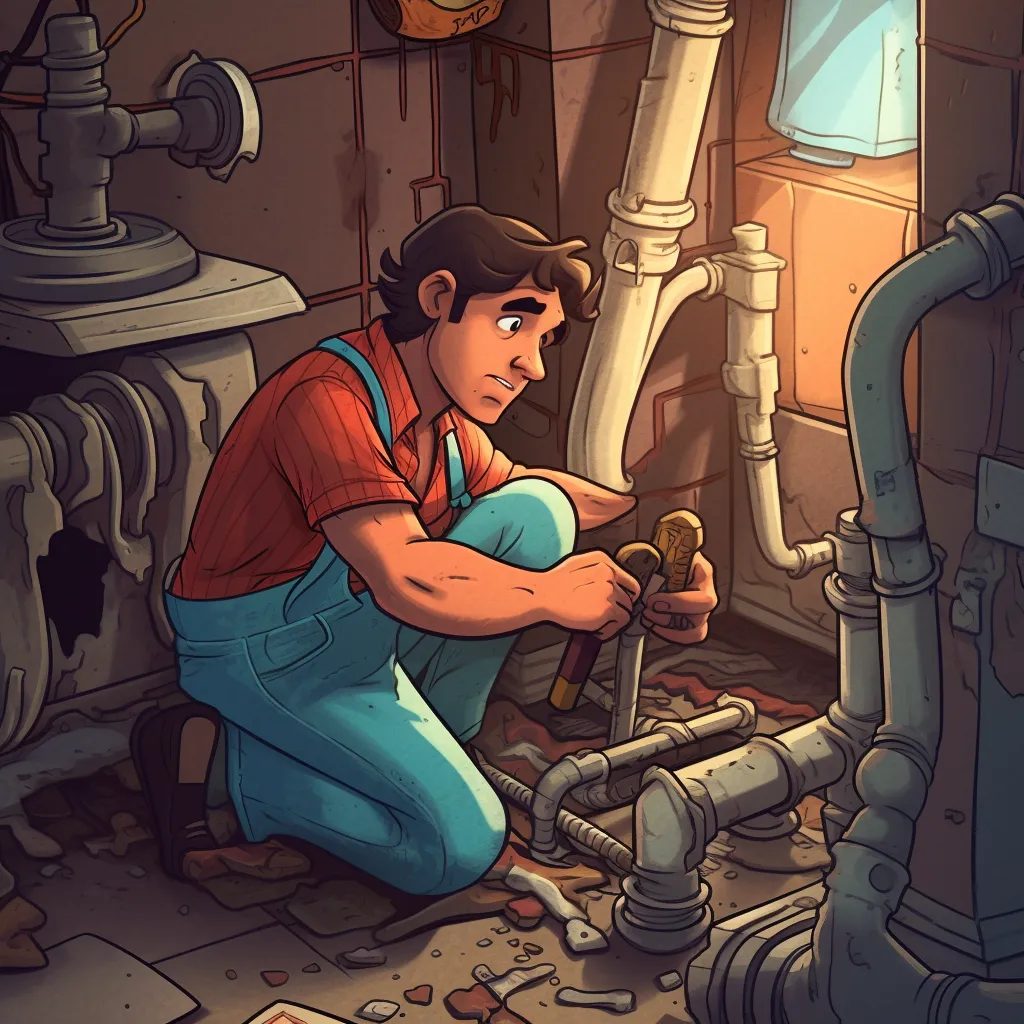
Research is important
Regular water heater maintenance can be a real time- and budget-saver. Watch out for common issues and investigate what causes them. Remember to keep tabs on the temperature and pressure, check for rust or corrosion, make sure the connections are secure, and clear the tank and pipes of any sediment buildup. It's crucial to learn about different types of water heaters and their corresponding maintenance requirements to select the right product for you. Finally, always have a licensed expert confirm that everything's running smoothly.
Contact Us
GET IN FULL TOUCH
PHONE (714) 930-2129
EMAIL:
Daniel@waterheaterbrea.com
Good Day Plumbing Service
Brea, CA 92821
